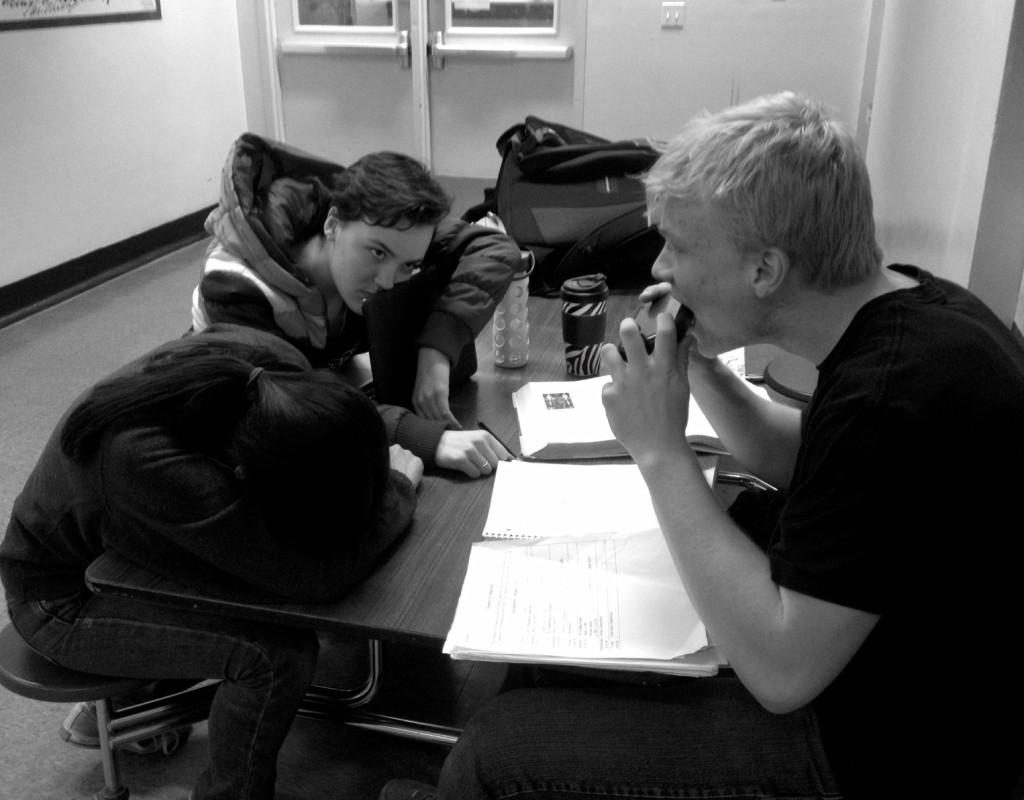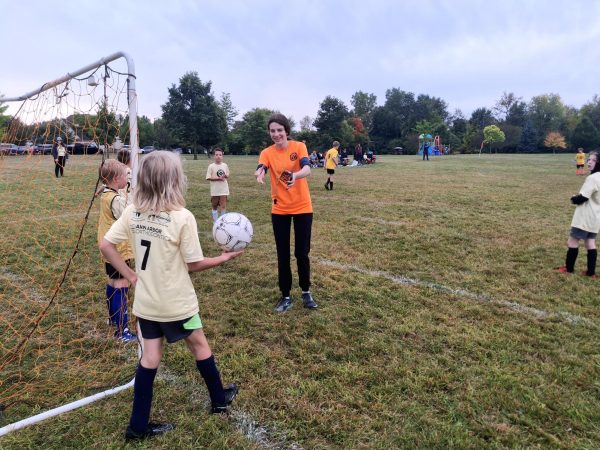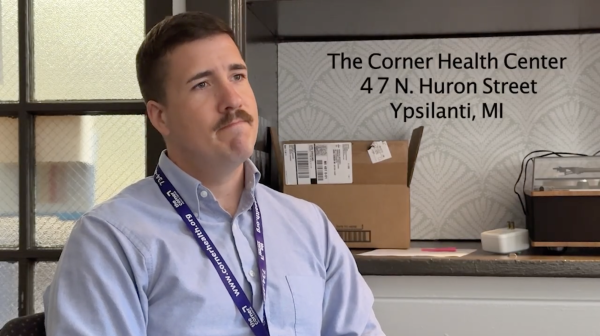Epidemic Alert: Senioritis Spreads
There is a disease that spreads through the twelfth grade every year that cannot be treated by a doctor. It’s more contagious than the flu, and more debilitating than mononucleosis. Common symptoms of this disease include procrastination, excessive texting during class, extended napping, and a sudden decline in test grades. No senior is safe from infection, and as second semester drags on, there is an ever-increasing number of students afflicted with senioritis.
So, what exactly is senioritis? Urban Dictionary defines it as “an attitude that high school seniors adopt anywhere from the start of the school year until the end.” However, senioritis affects students beyond the extent that just a lazy attitude would.
“It’s really hard to pull out the energy from those that have that severe case [of senioritis],” said art teacher Steve Coron. He believes that senioritis can be “…incredibly debilitating, and it can prohibit you from enjoying those final happy days at Community High.”
The cause for the spreading infection is clear–at least among those who are already afflicted. “You’re so close to the end,” said Eve Kausch, who admitted to having a mild case of senioritis. “You’ve already applied to college, you’re just like, ‘get me out of here, I’m sick of it.’”
Apart from her own desire to leave, Kausch does not believe her senioritis has had much effect on others in the school, such as her teachers. “This happens every year, and I think teachers deal with it and do their best,” Kausch said.
Coron has had plenty of first-hand experience with senioritis, and he possibly understands the virus better than his students. “So, there’s a happy senioritis. And then, on the far end of the spectrum, there is I-can’t-wait-to-get-the-heck-out-of-here-itis,” Coron explained. “And there’s this thing called self-inflicted senioritis, which is different than the natural occurring, more nature-based senioritis… one makes a conscious decision to engage in activities that kind of alter their perception of their senior year.”
The kind of perception-altering that has occurred for Kausch is that she has seen her work habits slowly begin to change. “I would always finish my work the night before it was due. For the first time ever this year, I came to school not having done the reading. Don’t tell Ken.”
Kausch is not alone in the fight against senioritis. Another senior whose year has been altered by the disease is Katie Taub. She stated that she simply lacks the motivation she once had. “It’s really amazing to me now if I finish my homework or even start it before one in the morning.”
Taub and Kausch both experience some of the most common symptoms of senioritis, which can end up impacting grades, homework completion, and test scores. Although Kausch and Taub both believe the disease can be detrimental to a senior’s school performance, they also believe there are ways to combat it.
“It’s been helping me to go to a coffee shop after school, get a decaf, and sit there and work,” said Taub. “I think that actually helps me get a lot of my work done if I go there before I walk home, because once I’m at home, I’m just like, ‘naaah.’”
Kausch calls upon her prior habits for getting past senioritis. “I sort of combat [senioritis] because my entire life I’ve been trained to do my work and be a goody-two-shoes,” said Kausch. “And so now, I’m just becoming less of a goody-two-shoes I guess, and procrastinating, but I still get all my work done.”
Whether it’s a mild or a severe case, senioritis can affect a multitude of students, from the lazy to the dedicated. The secret to fighting it may not be trying to stop it altogether, but to embrace the fact that you’ve earned a bit of a break after four years of high school. So, take an extra pause in studying, or put off your project another hour — just don’t let senioritis take over your life. As Coron warned: “After [senior year], you are no longer in Oz.”









